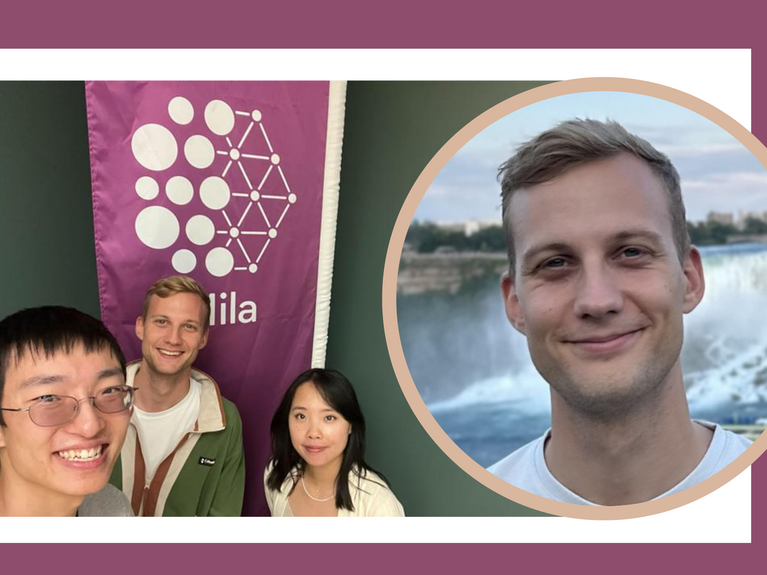Exploring new frontiers in ML as a PhD: Marco’s journey to Mila

Marco, a fourth-year PhD student in the Scialdone & Hoermanseder lab at Helmholtz Munich, is on a mission to unravel the complexities of gene regulatory networks using single-cell RNA expression data through his thesis. In the summer of 2024, Marco embarked on a transformative research stay at Mila, Montréal’s machine learning institute. Guided by Yoshua Bengio’s team— key collaborators in the Helmholtz International Lab for Causal Cell Dynamics (CCD), in partnership with Helmholtz AI — Marco’s time at Mila has been an inspiring blend of cutting-edge research, cultural exploration, and collaborative innovation.
Below, Marco shares how this unique experience shaped his research, opened new doors for collaboration, and offered valuable lessons for aspiring researchers.
1. How did your visit impact your PhD project ?
My research stay at Mila had a significant impact on my PhD project. I received valuable feedback and suggestions on the work I had already been pursuing. In addition to refining my ongoing project, the stay also sparked the initiation of a new subproject, which builds on both my previous findings and the cutting-edge machine learning research being conducted at the lab of Yoshua Bengio.
2. What are the things you like the most about your stay at Mila?
The expertise in all different aspects of machine learning at Mila was exceptional, enabling me to speed up my project, and the people were welcoming and supportive. The onboarding process at Mila was impressively efficient, including setting up my Mila account, cluster access, and receiving my access card. This was particularly important given the limited duration of my stay, so I could start the research without delays. Additionally, I enjoyed Montréal as a city combining the feel of North America with a touch of Europe.
3. What will you take back from there?
During my time at Mila, I gained valuable insights into topics like discrete diffusion and flow matching. I also came across the NeuroLibre Preprint format, which I found to be very interesting. Additionally, I was inspired by the ease of Mila’s cluster infrastructure setup, as well as the quality of the accompanying documentation.
4. How will the project you started there continue since you're back?
I'm still in regular contact with Alex Tong, a postdoc in Yoshua Bengio's lab, and we have continued collaborating on the project. We hold weekly Zoom meetings to discuss progress and exchange ideas.
5. What would you recommend to other PhD students who want to visit Mila?
If you get the opportunity to do such a research stay, take it—it's an incredibly rewarding experience. However, since it is unlikely that someone else will offer it to you, be proactive and start organizing it early.
6. Any final remarks?
A big thank you to Mathieu Seyfrid from the Helmholtz AI team at Helmholtz Munich for all the support in making this experience possible! His help was crucial & highly appreciated.